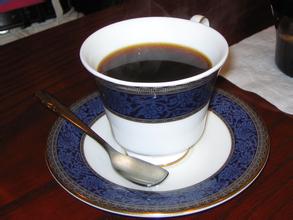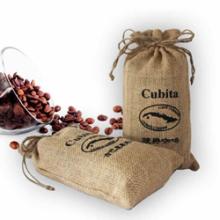Civet coffee boutique coffee beans latest coffee introduction the latest coffee information
Civet Coffee (Kopi Luwak), native to Indonesia. It is one of the most expensive coffee in the world, with a price of several hundred US dollars per pound. It is extracted from the feces of the civet and processed. The civet eats the ripe coffee fruit and is excreted through the digestive system. After it is fermented through the stomach, the coffee produced has a special taste and has become a hot item in the international market.
Kopi Luwak is produced by the feces of Indonesian coconut cats (a kind of civet) as raw materials, so it is called "Kopi Luwak". This kind of animal mainly feeds on coffee beans. After completing fermentation in the coconut cat's stomach, it destroys protein, produces short peptides and more free amino acids, reduces the bitterness of coffee, and then excretes feces as the main raw material. Because coffee beans cannot be digested, they are excreted and Kopi Luwak is made after washing and baking. Coffee critic Chris Rubin said, "the aroma of the wine is so rich and strong, and the coffee is incredibly rich, almost like syrup." Its thickness and chocolate taste, and lingering on the tongue for a long time, pure aftertaste. "
Coconut cats are omnivores. In addition to eating seeds, they also eat insects, snakes, birds, amphibians and reptiles, so the feces discharged by really wild coconut cats will be mixed with all kinds of substances. Local farmers in Indonesia catch coconut cats to raise them and feed coffee beans to make them. But after all, there are some differences between artificial cultivation and natural ones.
The civet likes to choose the most ripe, sweet, juicy coffee fruit in the coffee tree as food. The coffee fruit passes through its digestive system, and only the pulp on the outside of the fruit is digested, and the hard coffee beans are then excreted intact by the civet's digestive system.
In this way, in the process of digestion, the coffee beans have an unparalleled magical change, the flavor tends to be unique, the taste is particularly mellow, and the rich, round and sweet taste is also incomparable to other coffee beans. This is due to the fact that the civets' digestive system destroys the protein in the coffee beans, making the coffee much less bitter and increasing the round taste of the coffee beans.
Because wild civets are obviously better at selecting good coffee fruits, this kind of coffee has outstanding characteristics.

Important Notice :
前街咖啡 FrontStreet Coffee has moved to new addredd:
FrontStreet Coffee Address: 315,Donghua East Road,GuangZhou
Tel:020 38364473
- Prev

Boutique coffee beans Blue Mountain Coffee the latest coffee information and information details
Blue Mountain Coffee refers to coffee brewed from beans from the Blue Mountains of Jamaica. According to the grade, it is divided into Jamaica Blue Mountain Coffee and Jamaican Alpine Coffee. The Blue Mountains are located in the east of the island of Jamaica (Jamaica). Because the mountain is surrounded by the Caribbean Sea, whenever the weather is clear, the sun shines directly on the blue sea, and the peaks reflect the bright blue light of the sea.
- Next

Fine Coffee Beans Cuban Crystal Mountain Coffee Latest Coffee Information Unique Flavors
Crystal Mountain Coffee is produced on Crystal Mountain in Cuba, so it is called Cuban Crystal Mountain Coffee. Crystal Mountain Coffee is synonymous with top Cuban coffee because this area produces precious minerals such as quartz and crystal in addition to coffee. Crystal Mountain Coffee is characterized by its large size and bright green color. its flavor and taste characteristic: full of particles and uniform taste
Related
- Detailed explanation of Jadeite planting Land in Panamanian Jadeite Manor introduction to the grading system of Jadeite competitive bidding, Red bid, Green bid and Rose Summer
- Story of Coffee planting in Brenka region of Costa Rica Stonehenge Manor anaerobic heavy honey treatment of flavor mouth
- What's on the barrel of Blue Mountain Coffee beans?
- Can American coffee also pull flowers? How to use hot American style to pull out a good-looking pattern?
- Can you make a cold extract with coffee beans? What is the right proportion for cold-extracted coffee formula?
- Indonesian PWN Gold Mandrine Coffee Origin Features Flavor How to Chong? Mandolin coffee is American.
- A brief introduction to the flavor characteristics of Brazilian yellow bourbon coffee beans
- What is the effect of different water quality on the flavor of cold-extracted coffee? What kind of water is best for brewing coffee?
- Why do you think of Rose Summer whenever you mention Panamanian coffee?
- Introduction to the characteristics of authentic blue mountain coffee bean producing areas? What is the CIB Coffee Authority in Jamaica?

